Tradecraft observations on the Reichenbach/Fischer espionage case
May 3, 2024 2 Comments
 SEVERAL CASES OF CHINESE espionage have been announced recently in Europe. Thomas Reichenbach and Herwig and Ina Fischer —a married couple— were arrested on April 22, 2024, for illegal exports of dual use technology with military (naval) applications.
SEVERAL CASES OF CHINESE espionage have been announced recently in Europe. Thomas Reichenbach and Herwig and Ina Fischer —a married couple— were arrested on April 22, 2024, for illegal exports of dual use technology with military (naval) applications.
Reichenbach lists himself as a contract marketing manager for the Hong Kong Trade Development Council. He studied at Peking University in the mid-1980s. He worked in China, speaks Mandarin, and has a Chinese wife.
Herwig and Ina Fischer own a small engineering consulting company named Innovative Dragon in Duesseldorf. Both have travelled extensively in China. Innovative Dragon contracts for technical research with universities. Herwig studied mechanical engineering and aircraft and spacecraft construction at the Rhine-Westphalia Higher Technical School, focusing on guidance technology and composite fiber materials. The company headquarters are in London and there are offices in Duesseldorf and Shanghai (Donghua University Science and Technology Park). The London office does not appear to have a functioning telephone number.
Reichenbach is suspected of having been recruited by the Ministry of State Security (MSS) in China. The German government has accused the trio of having illegally exported dual use technology since at least 2022. At the time of the arrests, the suspects were in negotiations on additional research projects useful for expanding the combat strength of the Chinese People’s Liberation Army Navy.
Status: Alleged
Tradecraft observations:
- Use of a potential front company in London to facilitate allegedly illegal exports.
- Use of third countries to facilitate allegedly illegal exports.
- Reichenbach allegedly recruited Herwig and Ina Fischer and handled them as in-country assets.
- It is alleged that the MSS probably recruited Reichenbach in China.
- An MSS officer allegedly handled Reichenbach from China (linear control).
- The MSS allegedly funded the operation through front companies.
► Author: Nicholas Eftimiades* | Date: 03 May 2024 | Permalink
* Nicholas Eftimiades is a Senior Fellow at the Atlantic Council. He retired from a 34-year government career that included employment in the United States Central Intelligence Agency, the Department of State, and the Defense Intelligence Agency. He held appointments on the Department of Defense’s Defense Science Board and the Economic Security Subcommittee of the Department of Homeland Security’s Homeland Security Advisory Council. He is an advisor to the United States Intelligence Community. Eftimiades authored numerous works on China’s espionage methods. His books, Chinese Intelligence Operations (1994) and Chinese Espionage: Operations and Tactics (2020) are examinations of the structure, operations, and methodology of China’s intelligence services. They are widely regarded as seminal works in the field.
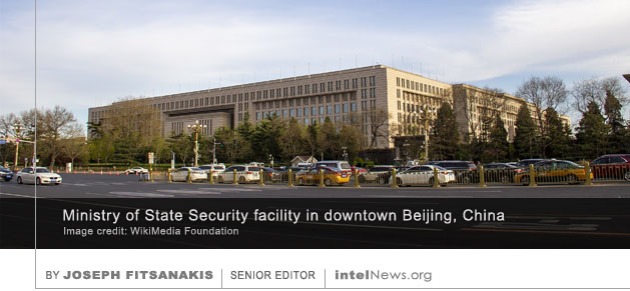 AUTHORITIES IN GERMANY HAVE arrested a sixth person in less than a month, in connection with three separate cases of espionage orchestrated by Russian or Chinese intelligence. Last Tuesday, police in the east German city of Dresden arrested an assistant to a leading politician of the far-right Alternative für Deutschland party (AfD). The assistant, who is a dual German-Chinese citizen, is accused of spying for Chinese intelligence, while the far-right politician who employed him is also being investigated, according to reports.
AUTHORITIES IN GERMANY HAVE arrested a sixth person in less than a month, in connection with three separate cases of espionage orchestrated by Russian or Chinese intelligence. Last Tuesday, police in the east German city of Dresden arrested an assistant to a leading politician of the far-right Alternative für Deutschland party (AfD). The assistant, who is a dual German-Chinese citizen, is accused of spying for Chinese intelligence, while the far-right politician who employed him is also being investigated, according to reports.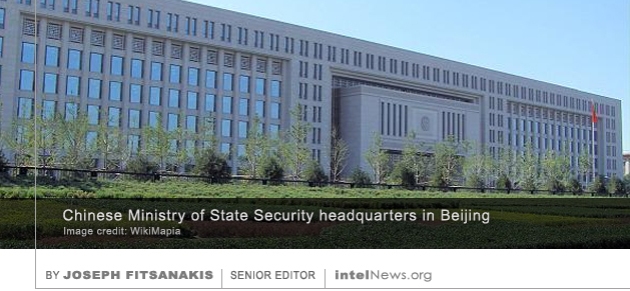 BEIJING HAS ACCUSED “FOREIGN governments” of collecting data on China through hundreds of fake meteorological stations that have been illegally installed throughout Chinese territory. The announcement appears to form part of a broader “people’s anti-espionage war” that the Communist Party of China
BEIJING HAS ACCUSED “FOREIGN governments” of collecting data on China through hundreds of fake meteorological stations that have been illegally installed throughout Chinese territory. The announcement appears to form part of a broader “people’s anti-espionage war” that the Communist Party of China  AUTHORITIES IN BRITAIN HAVE arrested two individuals on charges of espionage, among them a researcher for the British parliament who is being investigated for spying for China.
AUTHORITIES IN BRITAIN HAVE arrested two individuals on charges of espionage, among them a researcher for the British parliament who is being investigated for spying for China. 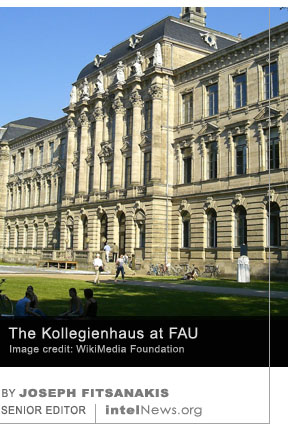 ONE OF GERMANY’S LEADING universities has suspended researchers funded by the Chinese government, citing concerns about academic freedom and industrial espionage. The Friedrich Alexander University of Erlangen-Nuremberg (FAU) announced the suspension of Chinese government-funded researchers in June of this year. In announcing the measure, the university stated that the move was designed to protect academic freedom and freedom of expression among its faculty and staff. Earlier this week, however, German media reported the contents of an internal FAU email, which expressed concerns that the Chinese state could be utilizing government-funded researches as spies.
ONE OF GERMANY’S LEADING universities has suspended researchers funded by the Chinese government, citing concerns about academic freedom and industrial espionage. The Friedrich Alexander University of Erlangen-Nuremberg (FAU) announced the suspension of Chinese government-funded researchers in June of this year. In announcing the measure, the university stated that the move was designed to protect academic freedom and freedom of expression among its faculty and staff. Earlier this week, however, German media reported the contents of an internal FAU email, which expressed concerns that the Chinese state could be utilizing government-funded researches as spies.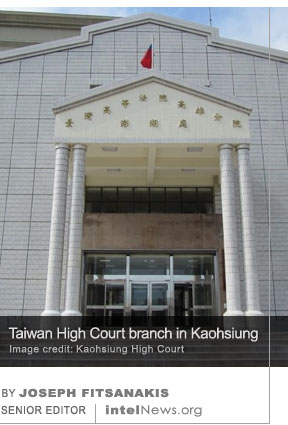 A SEVENTH PERSON HAS been detained in Taiwan as a result of a broadening investigation into a Chinese spy ring that allegedly provided Beijing with sensitive military intelligence. The existence of the investigation was
A SEVENTH PERSON HAS been detained in Taiwan as a result of a broadening investigation into a Chinese spy ring that allegedly provided Beijing with sensitive military intelligence. The existence of the investigation was 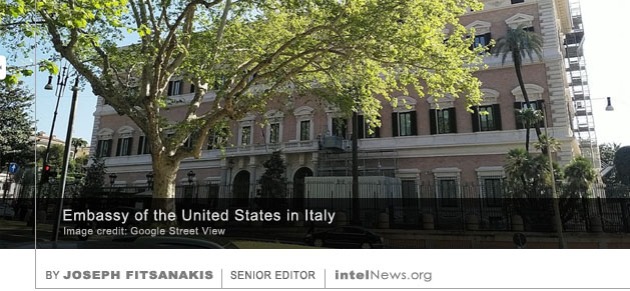 A CHINESE GOVERNMENT EMPLOYEE gave “core information” about China’s military to the United States, after he was recruited by a Central Intelligence Agency (CIA) officer in Italy, a Chinese state agency has said. The allegation was made in a statement that was issued on Friday by China’s civilian intelligence agency, the Ministry of State Security (MSS), on its WeChat social media account.
A CHINESE GOVERNMENT EMPLOYEE gave “core information” about China’s military to the United States, after he was recruited by a Central Intelligence Agency (CIA) officer in Italy, a Chinese state agency has said. The allegation was made in a statement that was issued on Friday by China’s civilian intelligence agency, the Ministry of State Security (MSS), on its WeChat social media account. A CHINESE COURT HAS sentenced a United States passport holder to life in prison on espionage charges, following a brief closed-door trial. However, no information has been made available about the precise charges against him. Closed-door trials are frequent occurrences in Chinese courts, especially in cases relating to national security, which include charges of espionage against the state. However, life sentences are exceedingly rare for espionage cases.
A CHINESE COURT HAS sentenced a United States passport holder to life in prison on espionage charges, following a brief closed-door trial. However, no information has been made available about the precise charges against him. Closed-door trials are frequent occurrences in Chinese courts, especially in cases relating to national security, which include charges of espionage against the state. However, life sentences are exceedingly rare for espionage cases. IN A SERIES OF rare public comments, the director of Taiwan’s primary intelligence agency has singled out 2027 as a year of paramount significance for China’s military plans for Taiwan. On Thursday, Tsai Ming-yen (pictured), director-general of Taiwan’s National Security Bureau (NSB) since February, spoke to an audience of graduating students at Taiwan’s National Chung Hsing University in Taichung City. According to
IN A SERIES OF rare public comments, the director of Taiwan’s primary intelligence agency has singled out 2027 as a year of paramount significance for China’s military plans for Taiwan. On Thursday, Tsai Ming-yen (pictured), director-general of Taiwan’s National Security Bureau (NSB) since February, spoke to an audience of graduating students at Taiwan’s National Chung Hsing University in Taichung City. According to  AUTHORITIES IN CANADA ARE reportedly probing claims that the Chinese government is operating at least two “clandestine police stations” in Montreal, which allegedly monitor the activities of Chinese citizens and Canadians of Chinese origin. The announcement comes less than four months after a similar
AUTHORITIES IN CANADA ARE reportedly probing claims that the Chinese government is operating at least two “clandestine police stations” in Montreal, which allegedly monitor the activities of Chinese citizens and Canadians of Chinese origin. The announcement comes less than four months after a similar  THE WORLD HEALTH ORGANIZATION has called on the United States and China to share what they know about the source of the COVID-19 pandemic. The call, made by WHO’s Director-General Dr. Tedros Adhanom Ghebreyesus and others, came days after United States Federal Bureau of Investigation Director Christopher Wray said in a television interview that COVID-19 “most likely” originated from a Chinese government laboratory.
THE WORLD HEALTH ORGANIZATION has called on the United States and China to share what they know about the source of the COVID-19 pandemic. The call, made by WHO’s Director-General Dr. Tedros Adhanom Ghebreyesus and others, came days after United States Federal Bureau of Investigation Director Christopher Wray said in a television interview that COVID-19 “most likely” originated from a Chinese government laboratory.





